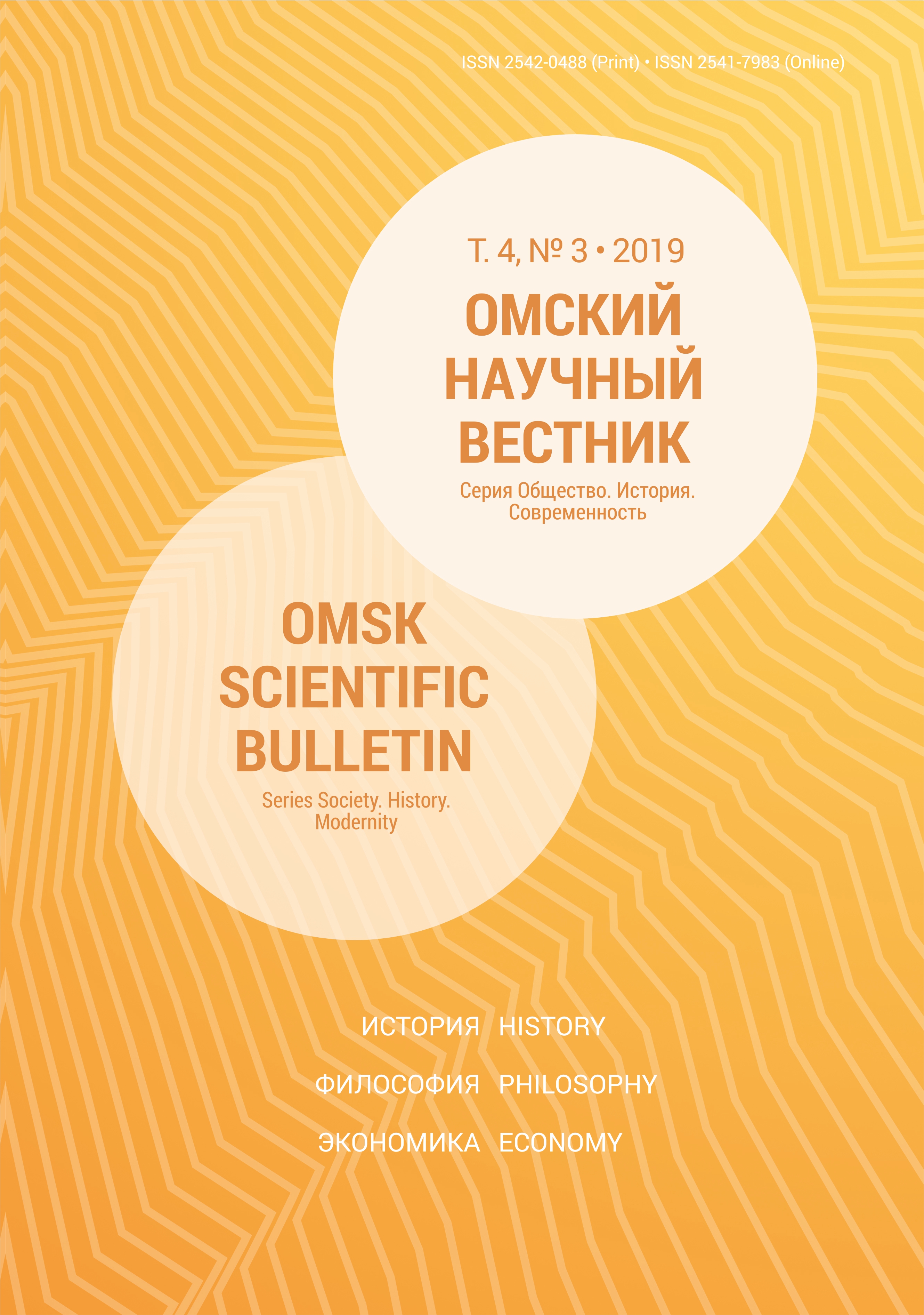Kazakhstan segment of Soviet historiography of agrarian colonization of Steppe region in second half of XIX–early XX centuries: factors of genesis and evolution
DOI:
https://doi.org/10.25206/2542-0488-2019-4-3-60-66Keywords:
Steppe region, agrarian colonization, Kazakhstan, the concept of absolute evil, the concept of relative evil, the concept of voluntary colonizationAbstract
The article is devoted to the reconstruction of socio-cultural and intellectual factors in the formation of the historiography of the agrarian colonization of the Steppe in Soviet Kazakhstan. The aim of the work is to identify the main stages of the formation in the Kazakh national historiography of the imperial experience of the inclusion of the steppe territories of the Trans-Urals in the Russian state. Achieving the goal is carried out by disclosing the contextual conditions for the development of the national segment of historiography, in the parameters of which there are approaches to accessing the process of colonization in the regions that are the subject of imperial actions. In the study based on methodological approaches and practices of cultural and intellectual history it was possible to trace the influence of the ideological principles of the Soviet state on the perception of colonialists in the domestic scientific community as a source of absolute and relative evil, to identify the circumstances that led to the recognition of the thesis of voluntary accession of the region to Russia. It is proved that the concept of voluntary accession of the Steppe territories to Russia is interconnected with the principles of the national policy of the USSR, which made it possible to recognize the de facto national stories about the «trauma of colonization», preserved in the cultural memory of the indigenous peoples.
Downloads
Published
How to Cite
Issue
Section
License
Non-exclusive rights to the article are transferred to the journal in full accordance with the Creative Commons License BY-NC-SA 4.0 «Attribution-NonCommercial-ShareAlike 4.0 Worldwide License (CC BY-NC-SA 4.0»)




